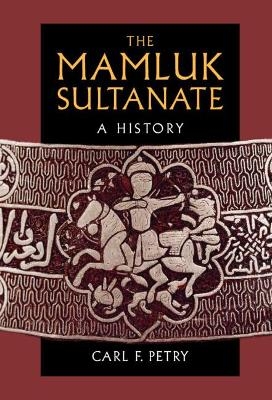
The Mamluk Sultanate
Cambridge University Press (Verlag)
978-1-108-47104-6 (ISBN)
The Mamluk Sultanate ruled Egypt, Syria and the Arabian hinterland along the Red Sea. Lasting from the deposition of the Ayyubid dynasty (c. 1250) to the Ottoman conquest of Egypt in 1517, this regime of slave-soldiers incorporated many of the political structures and cultural traditions of its Fatimid and Ayyubid predecessors. Yet its system of governance and centralisation of authority represented radical departures from the hierarchies of power that predated it. Providing a rich and comprehensive survey of events from the Sultanate's founding to the Ottoman occupation, this interdisciplinary book explores the Sultanate's identity and heritage after the Mongol conquests, the expedience of conspiratorial politics, and the close symbiosis of the military elite and civil bureaucracy. Carl F. Petry also considers the statecraft, foreign policy, economy and cultural legacy of the Sultanate, and its interaction with polities throughout the central Islamic world and beyond. In doing so, Petry reveals how the Mamluk Sultanate can be regarded as a significant experiment in the history of state-building within the pre-modern Islamic world.
Carl F. Petry is the Hamad Ibn Khalifa Al Thani Professor of Middle East Studies and Professor of HIstory at Northwestern University. He is the author of The Civilian Elite of Cairo in the Later Middle Ages (1982), Twilight of Majesty: The Reigns of al-Ashraf Qaytbay and Qansuh al-Ghawri in Egypt (1993), Protectors or Praetorians? The Last Mamluk Sultans and Egypt's Waning as a Great Power (1994), The Criminal Underworld in a Medieval Islamic Society: Narratives from Cairo and Damascus under the Mamluks (2012) and is the Editor of The Cambridge History of Egypt: Islamic Egypt, 640-1517 (1998). His research has been supported by the J. S. Guggenheim Foundation, the Institute for Advanced Study, the American Research Center in Egypt, and the American Council of Learned Societies.
Introduction; 1. Synopsis of events; 2. Ethos of the 'slave-soldiers' regime; 3. The mamluk sultanate from a global perspective; 4. Vocational classes: Bureaucrats, magistrates, scholastics, clerics; 5. The political economy; contexts of innovation; 6. The cultural legacy; patronage, audience, genres, historiography; 7. The rural environment, gender issues, minority communities, sufi practice; Reflections; Bibliography; Index.
| Erscheinungsdatum | 27.04.2022 |
|---|---|
| Zusatzinfo | Worked examples or Exercises |
| Verlagsort | Cambridge |
| Sprache | englisch |
| Maße | 158 x 235 mm |
| Gewicht | 690 g |
| Themenwelt | Geschichte ► Allgemeine Geschichte ► Mittelalter |
| Geschichte ► Allgemeine Geschichte ► Neuzeit (bis 1918) | |
| Geisteswissenschaften ► Geschichte ► Regional- / Ländergeschichte | |
| ISBN-10 | 1-108-47104-8 / 1108471048 |
| ISBN-13 | 978-1-108-47104-6 / 9781108471046 |
| Zustand | Neuware |
| Haben Sie eine Frage zum Produkt? |
aus dem Bereich


